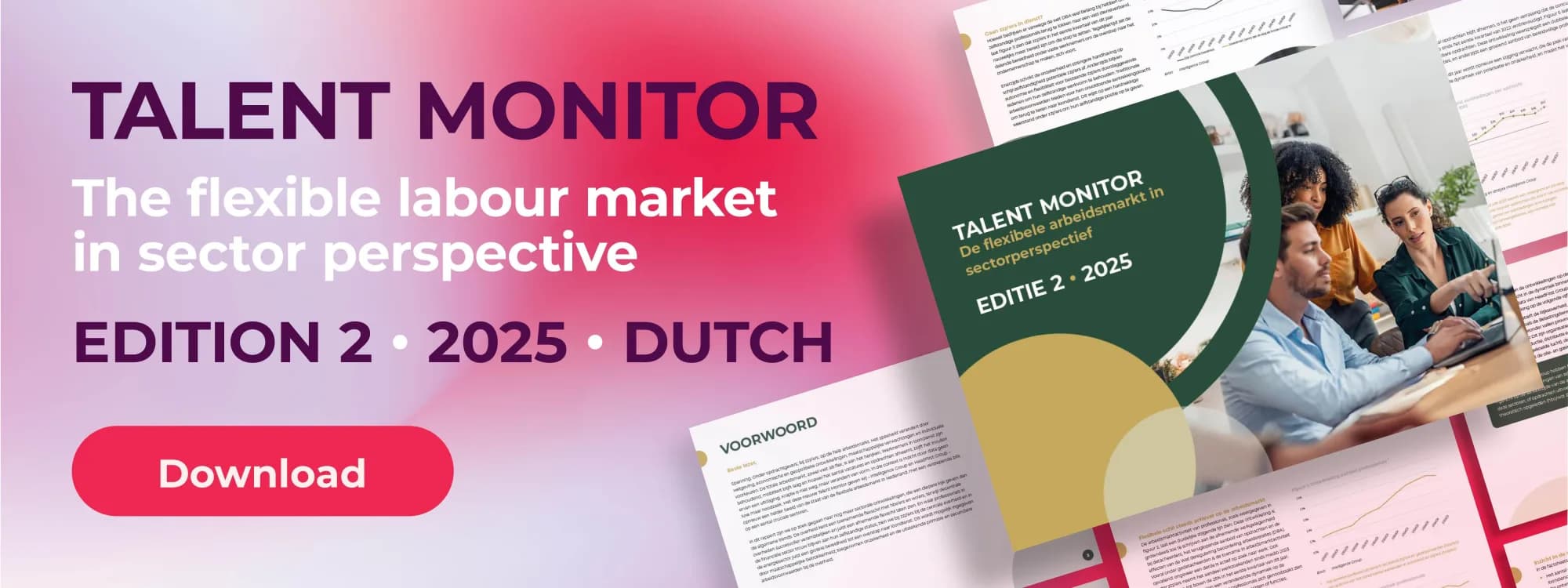The central government is changing rapidly. Not only in terms of policy, but also in the way it works with external professionals. In three years, the share of highly educated temporary workers has more than doubled. While 6% of work was done by external contractors in 2022, that figure had risen to 13% by early 2025.
Fewer new contracts, more focus on extensions
Total demand is falling slightly. But the number of extensions is rising. The government prefers to keep professionals on board for a longer period. This makes sense, because experience and complexity are paramount in this complex environment. The number of offers per contract has also been above average for some time. In other words, competition is fierce, and quality trumps quantity. At the same time, extending contracts within the public sector requires a careful approach. This means thorough consultation with clients and candidates, and consideration of regulations regarding bogus self-employment and the Deregulation Assessment of Employment Relationships Act (DBA). This prevents contracts from having to be unexpectedly adjusted or terminated.
The rates? High.
The central government pays above average. This attracts an experienced target group. The highest-earning professionals are business administrators and organizational consultants, with an average hourly rate of €109. This is €15 more than in local government. Policy advisors, IT managers, and network specialists also earn well over €100.
Who are these professionals?
The flexible workforce is diverse, but the largest group has more than 10 years of experience. 58% are senior, 25% mid-level, and 17% junior. The ages vary, with a peak between 35 and 55.
The gender distribution is fairly even: 61% men, 39% women. This makes the sector more attractive for diverse teams and inclusive propositions.
Permanent or flexible? Lots of uncertainty, lots of potential
More than half (57%) of professionals are seriously considering a return to employment. Whether it's due to financial security, social contacts, or simply a need for stability: it's valuable information.
In addition, 44% of professionals indicate they are also interested in other sectors, such as local government. Think of education, IT, defense, police, or fire brigade.
The willingness to switch offers opportunities to broaden your perspective beyond the standard profiles. Play with perspectives. Look beyond your own sector and demonstrate what someone at your organization can learn, contribute, and achieve.
What does this require of you?
Working with central government requires a different approach than with commercial clients. The processes are more formal and decision-making is slower, but the playing field is stable and predictable. And that offers opportunities, if you know what to look for.
Three ways to respond intelligently:
- Invest in extensions
Many professionals stay on their assignments longer. Maintain active contact and initiate discussions about possible extensions well in advance. Ensure transparency and consultation, and consider the legal frameworks surrounding independence and contract types. - Approach sector-hopping individuals personally
Many external professionals are open to switching sectors. Make it appealing with examples of successful switchers and demonstrate how their experience aligns with today's societal challenges. - Translate fixed ambitions into flexible solutions
More than half of professionals are considering returning to employment. Ask them why. Often, it's about increased stability or career opportunities. You can capitalize on this. Offer assignments with the prospect of a permanent contract. And also include practical benefits, such as a training budget.
Take the time to understand your sector. Not by rushing, but by providing smarter guidance.
Want to know exactly what's going on within the central government? Where the greatest demand lies? And which profiles are performing best? Then download our Talent Monitor (in Dutch) now. You'll gain clear insights, up-to-date figures, and concrete tools to effectively tap into this growing market.

